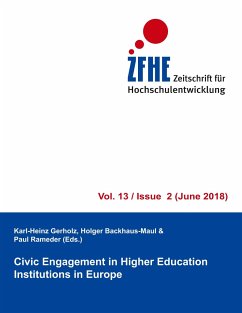
Performance Management in Kenyan Higher Education Institutions
The Role of Organizational Culture

PAYBACK Punkte
38 °P sammeln!
The present study exploratively investigated the role of organizational culture in performance management practices in Kenyan higher education institutions. Specifically, the influence of organizational culture on the purpose and extent to which performance information is used was explored. Qualitative interviews were conducted followed by quantitative surveys, which were filled out by teaching and non-teaching staff in various universities in Kenya. The findings provide evidence of linkages between performance information use, diversity of measure and organizational culture. It has been estab...
The present study exploratively investigated the role of organizational culture in performance management practices in Kenyan higher education institutions. Specifically, the influence of organizational culture on the purpose and extent to which performance information is used was explored. Qualitative interviews were conducted followed by quantitative surveys, which were filled out by teaching and non-teaching staff in various universities in Kenya. The findings provide evidence of linkages between performance information use, diversity of measure and organizational culture. It has been established that, depending on whether flexibility or control values are dominant in the culture of an institution; performance information is used in varying ways. Institutions where flexibility values were dominant in their organizational cultures used performance information for attention focus, monitoring and decision making to a higher extent than universities where control values were dominant. Institutions where Flexibility values were dominant also showed a more diverse set of performance measures than in those where control values were dominant.














